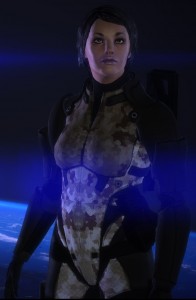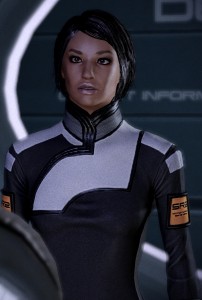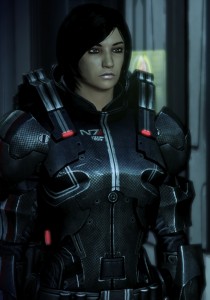My current plate of play is piled high with equal portions of Dungeons & Dragons Online and Rift, as I gorge myself once more on morsels from the ‘all you can eat’ MMO buffet. Update 6 for Lord of the Rings Online approaches as swiftly as the flow of The Great River it brings with it, but I find myself utterly uninterested in returning to my mature MMO mistress. For the first time I find that I don’t like the direction in which Turbine are taking their interpretation of the free-to-play model and, combined with yet more of what I see as complications to the design of the warden class, it seems as though I’m gently drifting away from LotRO, the current of its ambitions finally flowing in a divergent direction to the current of my interests. As it is with others, I find the Premium Barter Wallet to be an unnecessary device: a solution to a problem that needn’t have existed in the first place. To sell players inventory space, fill that inventory with barter currency which monopolises that space in an entirely unnecessary fashion, and then offer to sell players yet another form of inventory to solve this issue, should be viewed as a worrisome development at best; I see it as invidiousness.
Curiously, I ended up giving Turbine some of my money anyway, but this time I’ve decided to invest a little in DDO. The new expansion has piqued my curiosity, and by ordering early there is the usual array of bonus trinkets and knickknacks offered along with the expansion content itself. Having lost my mind momentarily and plumped for the Libertine Edition, I found myself with an abundance of niceties, amongst which were included 2000 Turbine Points. With some time yet until the expansion, but with an already renewed enthusiasm for DDO, expansion notwithstanding, I decided to invest some of the Tubine Points into the relatively recently released Artificer class. The fact that the class happened to be on sale at the time only spurred me into divesting myself of my newfound digital wealth as quickly as I had obtained it. The Artificer class is bonkers-powerful in that way which only ‘expansion’ classes can be; as with the Death Knight in World of Warcraft, the Runekeeper and Warden in LotRO, the Beastlord in EverQuest 2, and many others, the Artificer is a new class which seems to thrust through the canopy of classes, before unfurling the tremendous branches of its power and leaving all else somewhat in its shade. The Artificer uses a repeating crossbow, a weapon which has received a revamp to its mechanics coinciding with the release of the Artificer, transforming the weapon from the ranged equivalent of lightly slapping the target repeatedly about the face with a herring, into something more akin to dropping a quick succession of blue whales from a sub-orbital platform onto the head of the unsuspecting villain . That alone, for me, would make the class interesting, but in this Swiss Army knife of classes, that’s just the weird tool tucked behind the tool which hooks the stones out of horse hooves. The Artificer can also detect and disarm traps and locks, much like the rogue class. They also have a pet, which levels-up with the character, can be equipped with various items, and has its own line of enhancements including two prestige lines – in this I believe the pet is better developed than some of the existing classes in the game.
So you can see that the Artificer is pretty powerful, really; unfairly so, some might suggest.
So I probably shouldn’t mention the Rune Arm weapon: a device which has various uses, but starts off as a basic close-range flame thrower which can be charged up to various levels of power, and doesn’t even require the player to swap out their +5 Blue Whale Launching Turret of Mass Extinction in order to use it.
Yes indeed, the Artificer is pretty crazily powerful, I think you’ll agree.
So I probably shouldn’t mention the fact that they can cast spells from a selection which rivals that of Wizards, including, but not limited to, the uberlevelling munchkin caster’s damage spell of choice – Blade Barrier, as well as the ability to conjure crossbow bolts like an Arcane Archer. There’s also the newly added line of curative admixtures, which allow the Artificer to turn health and resistance potions into grenades, which they can then lob into a crowd for an AoE version of that potion’s benefits.
Pretty powerful. Overpowered, some might say.
So I probably shouldn’t mention the fact that – nah, just kidding, that’s about it. I mean, apart from the fact that they’re able to transform into Godzilla at fourth level, but I don’t suppose you’re interested in that. It leaves me wondering what Turbine will have to do to make the druid class –which is being launched with the new expansion in June– appealing to players. Obviously it’s something that players in DDO have been clamouring for with equal voracious verve as players of EQ2 were for the Beastlord, but I can’t help but think that Turbine have to go even further with this class in order to make it stand out against that solitary device of dungeon destruction and devastation encompassed in the Artificer. As such, I imagine that the player of a freshly created level one Druid will look down upon their hotbar and see a single button, with a tooltip that reads:
Lunar Transformation: The druid transforms into a fully operation battle station and becomes the ultimate power in the universe.
.
‘That’s no moon.’
Despite professing to the contrary, I found myself drawn into raiding in Rift over the weekend. And what incomprehensible minatory threat to reality was it which caused me to throw reticence to the wind and join the noble cause of a pick-up raid of valiant Ascended?
Balloons.
Extra-dimensional death balloons of death and greater death, that cause death with their deathly death rays of much death and deathness?!
No, no – party balloons. Tied to the floor outside of a carnival tent.
Rift’s one year anniversary event is in full swing, and the phase of progress (read: stage of the grind) that has currently been reached allows for players to participate in various carnival games staged around the tented encampment of NPCs, who have set up shop in the capital cities of the two factions, as well as in the Shimmersand region. It’s the standard MMO event, with mini-games rewarding a currency –in this case, prize tickets– which can be used to barter for various event-only items, such as cosmetics and trinkets and the like. The balloon game requires the player character to jump around a small pen bursting balloons (the event is themed around a carnival, and thus balloons play a large part in various aspects) until they have dispatched thirty of the villainous rubbery entrappers of helium. The keys to the ‘exploitation’ of this game are:
a) It is instantly repeatable, rather than being daily.
b) In a group, or raid, any burst balloon counts towards the total for all members of the group or raid.
So, MMO players being, well, MMO players, have optimised this game by forming raids of players who all jump up and down on the spot, only stopping to hand-in the quest to the vendor (standing right beside the balloon pen) and pick-up the quest once again. For a single player the quest would probably take somewhere in the carefully-balanced-by-developers region of a minute; in a raid you can get in about two jumps before you need to hand-in the quest again.
Thus, there I was, for ten or fifteen minutes, in a raid consisting primarily of level-capped heroes, with their giant raider’s shoulder pads; epic weapons encrusted with jewels; trailed by a small choir of angels chanting the player’s great deeds for all the world to bear witness to; as the twenty of us jumped up and down like loons, popping balloons. A grinding platoon, marching to the theme park’s tune.
Are we entirely sure we’re not in Azeroth any more?




